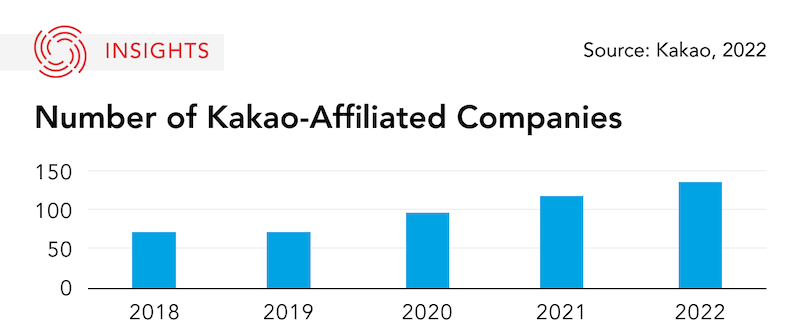The Takeaway
A small fire coming from a spark at a South Korean tech giant’s data centre triggered unprecedented outages across the company’s online and mobile services on October 15, 2022. Kakao’s nationwide blackout was a wake-up call for all Koreans, who are now keenly aware of the issues resulting from Kakao’s monopoly, and the tenuous security of the platform services involved in every aspect of their lives.
In Brief
The blaze at the Kakao data centre temporarily suspended Kakao’s messaging, banking, ride-hailing, booking, payments, music-streaming, and navigation services. This included South Korea’s top mobile messenger platform, KakaoTalk, which boasts more than 47 million domestic users, or 92 per cent of the South Korean population. The KakaoTalk outage further affected overseas Koreans and foreign users with connections to families, friends, and services in South Korea.
All Kakao services were restored on October 19. During the outage, South Koreans were notified of service updates through government-controlled emergency text messages. This rare move, typically only deployed in ‘disaster’ situations, underlines just how seriously the government took the event.
Implications
Platform companies try to lock more users into their services through a variety of steps, including:
- Initially, providing services for free increases the number of users and the service’s value, making it difficult for existing users to leave. This is called the ‘network effect.’
- Upon attracting new users and creating barriers to leaving, platform companies use accumulated data to expand services and grow in size. For instance, Kakao has analyzed flows of money, people, vehicles, and public opinion through its apps and used the data for its subsidiaries to settle into new domestic markets and expand local businesses.
- In the expansion process, platform companies often discriminate against existing competitors that overlap in business areas or engage in unfair practices that require them to meet the most favourable conditions for their platforms.

Many criticize Kakao for using these tactics to recklessly expand and diversify its businesses. As of May 2022, 136 companies belonged to the Kakao Group, almost doubling from 72 in 2018. Many Kakao-affiliated companies have steadily grown by aggressively targeting domestic markets, which tends to add pressure on small local businesses. Kakao has been praised as an icon of innovation, but it is now criticized for expanding its businesses without an adequate crisis response system.
Since the “Kakao incident,” politicians and the public alike have raised concerns about the monopoly and security of platform companies, which necessitate government regulations. South Korean President Yoon said on October 17: “If the market is distorted in a monopoly or severe oligopoly, I think the state should take necessary measures systematically for the benefit of the people.”
What's Next
- The South Korean government and legislators began discussing restrictions on Kakao’s monopoly and launching potential state-run alternative services.
- The South Korean Fair Trade Commission will revise the ‘Business Combination Review Standards’ to effectively block mergers and acquisitions by large platform companies for their reckless and predatory business expansion.
- Kakao has been receiving damage compensation applications since October 19 but has yet to disclose specific compensation plans. As a free service, there is controversy over whether Kakao Talk users should also be compensated. More complicated legal disputes are expected due to several ongoing class action lawsuits.
• Produced by CAST’s Northeast Asia team: Dr. Scott Harrison (Senior Program Manager) scott.harrison@asiapacific.ca; Momo Sakudo (Analyst); and Tae Yeon Eom (Analyst).




